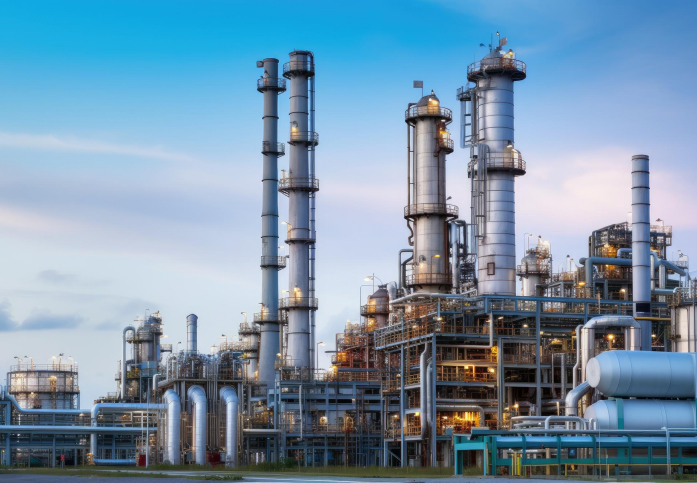Process development refers to developing and refining systems that are utilized to create products, especially in industries like pharmaceuticals, chemicals, and manufacturing. This includes designing, testing, and optimizing production processes to ensure efficiency, quality, and cost-effectiveness.
Whereas research and development (R&D) is geared towards innovation and the creation of new products or technologies, process development in manufacturing is all about optimizing the way in which things are produced. The result is increased productivity, lower costs, higher quality of product, improved customer satisfaction, and a stronger competitive position for their business.
By streamlining processes, businesses can become more attuned to the needs of the customers and the changes in the market, which leads to better productivity, lower costs, superior quality, improved customer satisfaction, and a stronger competitive position for their businesses.
Let’s discuss process development in manufacturing in depth in this blog.
Why is Process Development Important?
The importance of development in the process cannot be overstated. It is instrumental in ensuring that a company’s production processes are effective, scalable, and sustainable. With a highly devised process in place, organizations can ensure uniformity in the quality of the product, reduce wastage, and comply with the statutory requirements.
Both successful process and development lead to more efficient resource management and increase the use of raw materials, time, and labor in the manufacturing process. This, in return, improves profitability and mitigates operational risk. In segments such as pharmaceuticals and chemicals, a well-tuned process determines the success or failure of the product in the market. Also, solid process development practices enable innovations and stay with technology updates.
Suggested Read: Sustainability in the Process Industry
Key Stages of Process Development
Process development in manufacturing is a multi-step process that involves several stages, each focused on refining different aspects of production. Here’s a breakdown of the key stages:
Initial Research and Development
The first stage of process development is research and development (R&D). This phase gathers data, analyzes potential production methods, and develops prototypes. The goal is to identify the best approach to manufacturing the product that balances quality, cost, and efficiency.
This stage often involves experiments, simulations, and lab-scale trials to test various methods. During this phase, engineers and scientists work together to determine the most effective production process while considering factors such as safety, regulatory compliance, and sustainability.
Scale-Up
Once the R&D phase has been completed, we must move to scale up. This reminds us that transitioning from lab or experimental procedures to a larger scale or more commercial process is essential. It’s one of the most important stages in process development because quickly scaling up can lead to inefficiencies, higher costs, or damage to quality. Production techniques are verified in real-world environments and refined for later stages with bigger manufacturing scales in this phase. The primary concern in this regard is to simulate laboratory or pilot-scale conditions in a full-scale production. This may include changes to equipment, materials, or the process.
Optimization
Once we have scaled up, the next step is optimization. Here, the emphasis is placed on refining the process for better productivity and quality. The approach could include waste reduction, energy efficiency, throughput, and product quality improvement.
The process usually moves into a phase where outputs are constantly monitored and production parameters, like temperature, pressure, and chemical composition, are adjusted for an optimal result. Process development engineers are also focused on ensuring that the process is consistent and repeatable so that quality standards are met.
Validation and Commercialization
Development in the process ends at the final phase, validation and commercialization. Validation is a process that is tested under real production conditions to establish its consistency and ability to produce products that meet specifications. This phase is usually heavily regulated, particularly in the pharmaceuticals and food production sectors.
After that, the process is validated and commercialized. That means it is now ready for mass production and delivery to consumers. Companies monitor the process to ensure that it is still operating effectively and in accordance with regulations. Process development at this stage is tightly interwoven with quality control and assurance so that the end product is safe and effective.
Organizations can also benefit from expert Engineering Consulting Services to guide process development, improve scalability, and ensure regulatory compliance across industries.
Examples of Process Development in Manufacturing
In manufacturing, process development is crucial for ensuring that products are produced efficiently, safely, and within quality specifications. Here are some real-world examples:
- Pharmaceutical Industry: Process development in the pharmaceutical industry involves fine-tuning the production of drugs. This involves improving processes that make the active ingredients, testing the variety of formulations, and ensuring that the products being produced are of consistent quality at scale.
- Chemical Manufacturing: Process development in chemical manufacturing ensures chemical reactions happen at the appropriate temperature, pressure, and concentration. It also considers minimizing byproducts and waste, which is key for sustainability and cost efficiency.
- Food Production: Process development is also used in food production industries to scale up production processes and ensure product quality. For instance, it improves the techniques used to store food products or develops new recipes to satisfy consumers.
- Automotive Manufacturing: Automotive manufacturers work on process development for the assembly line, introducing automation and reducing material waste. The intention is to accelerate, streamline, and make the manufacturing process economical and scalable.
Suggested Read: Chemical Process Safety Management: Unique Challenges and Solutions
Conclusion
Process development is critical to industrial manufacturing, enabling companies to optimize production methods, improve quality, and meet consumer demand. The stages—research and development, scale-up, optimization, and validation—help ensure that production processes are efficient, cost-effective, and compliant with regulatory standards. Through careful and continuous development, companies can improve their operational efficiency, reduce costs, and increase their competitive edge in the market.
Understanding the significance of process development in various industries will help businesses streamline their production operations and meet customers’ evolving demands. By investing in process development, companies enhance their productivity and contribute to a more sustainable and profitable future.
Suggested Read: What is a Process Design Package?
FAQs On Process Development
What is process development and why is it important in manufacturing?
Process development is basically figuring out how to make a product — not just once, but over and over again in a reliable, cost-effective way. It’s important because it bridges the gap between an idea and large-scale production. Without it, scaling up becomes guesswork.
How does process development differ from research and development (R&D)?
R&D is where you come up with the what — like, what the product is and how it works. Process development is more about the how — how to make it efficiently, safely, and at the right scale. R&D is the lab; process development is the factory floor.
What are the key stages involved in process development?
Usually, it starts with small-scale testing, then moves to pilot-scale trials, then full production. Along the way, teams fine-tune steps, test materials, monitor outputs, and make sure everything runs smoothly before rolling out the final process.
How does scaling up impact the process development lifecycle?
Things that work in the lab don’t always behave the same way when scaled up. Scaling changes how materials mix, how heat transfers, and how fast things happen. So you need extra testing and adjustments before going full-scale.
What role does process optimization play in improving production efficiency?
Once the basic process is working, optimization helps improve yield, reduce energy use, cut down on waste, and save time. Even small tweaks can have a huge impact on the bottom line.
How is process development applied in the pharmaceutical industry?
In pharma, it’s about more than just efficiency — it’s also about safety and consistency. Process development helps ensure each batch of medicine meets strict quality standards. It also supports regulatory approvals by showing that the process is reliable.
What are the main challenges companies face during process development?
Some of the big ones: unpredictable results when scaling, equipment limitations, regulatory hurdles, and time pressure. Plus, cross-team coordination can be tricky — R&D, engineering, QA, and production all need to stay aligned.
How does process development contribute to cost reduction and waste minimization?
A well-developed process uses fewer raw materials, runs faster, and produces fewer defects or unusable byproducts. That means less waste, lower costs, and more consistent product quality over time.
Why is validation critical before commercializing a new manufacturing process?
Validation is like the final safety check. It proves that your process actually works the way it’s supposed to — every time. Without it, there’s risk of failure, recalls, or non-compliance with regulations.
What industries benefit the most from effective process development?
Pharma, chemicals, food & beverage, oil & gas, and manufacturing industries — pretty much anywhere that high-volume, high-precision production matters. Even emerging fields like clean energy and biotech rely heavily on solid process development.




